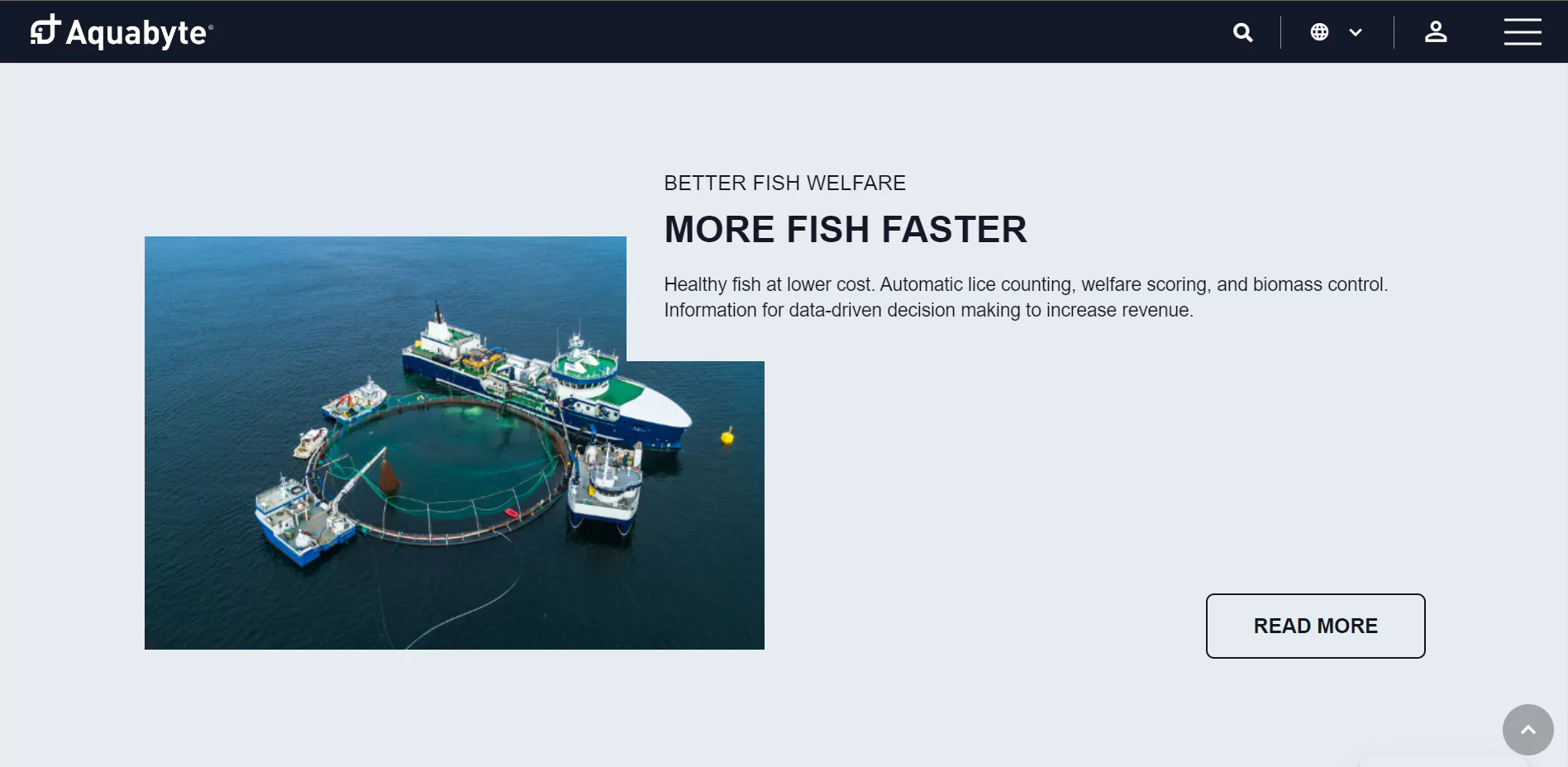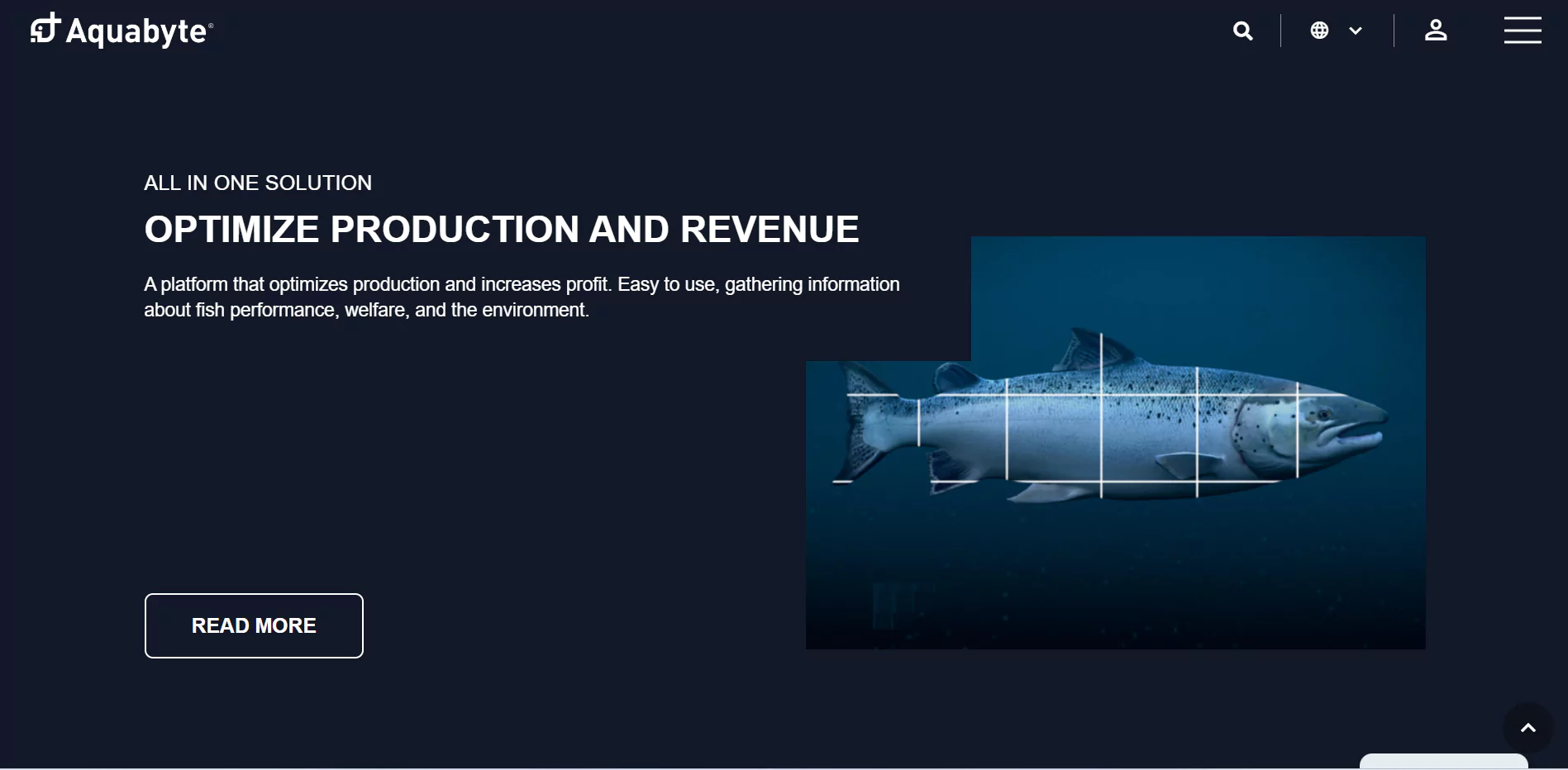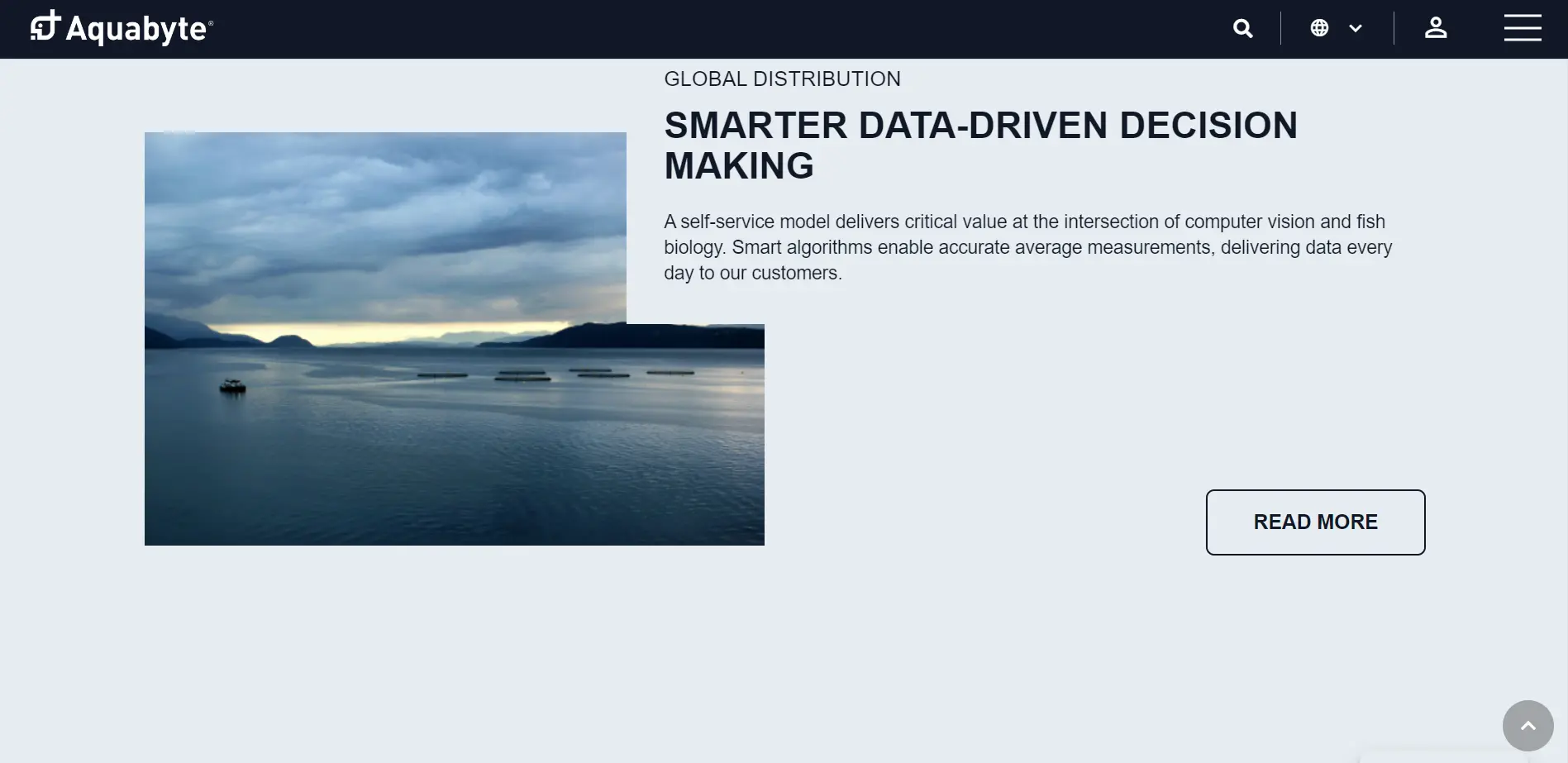This Startup's Making Aquaculture Sustainable With AI

Table of Contents
- Introduction
- Role of Computer Vision
- About Aquabyte
- How Aquabyte Utilizes Computer Vision
- Conclusion
Introduction
The aquaculture industry, which involves fish farming, faces various challenges that hinder its growth and sustainability.
One of the major issues is the lack of efficient and accurate monitoring of fish health, welfare, and environmental conditions, which can lead to reduced productivity, disease outbreaks, and economic losses.
Traditional monitoring of fish farms, such as manual observations and sample testing, is time-consuming, costly, and often unreliable.
As a result, there is a need for innovative and technology-driven solutions, such as computer vision-based systems, that can provide real-time, non-invasive monitoring and analysis of fish behavior, health, and environmental conditions, leading to improved fish health, productivity, and sustainability.

Figure: Aquabytes Smart data-driven fish monitoring system
According to a report by the Food and Agriculture Organization (FAO) of the United Nations, the global aquaculture industry has been growing steadily over the past few decades and reached a market size of over USD 245 billion in 2020.
Traditional monitoring of fish farms, such as manual observations and sample testing, is time-consuming, costly, and often unreliable.
As a result, fish farmers may lose significant amounts of money due to inefficient and ineffective management practices.
For instance, disease outbreaks can cause significant losses to fish farmers. According to a study by the University of Stirling, infectious salmon anemia (ISA) alone can cause losses of up to USD 180 million per year in the global salmon industry.
Moreover, the environmental damage caused by poor management practices can result in regulatory fines and damage the industry's reputation.
Aquabyte is a company that provides computer vision and machine learning solutions to the aquaculture industry. The company was founded in 2017 and is based in San Francisco, California.

Figure: Aquabytes smart analysis of fishery
Aquabyte's technology is designed to improve the efficiency and sustainability of fish farming operations by providing real-time insights into fish health and behavior.
The company's products include underwater cameras and image recognition software to monitor fish populations, detect diseases, and optimize feeding practices.
Aquabyte's computer vision system is designed to identify and track individual fish within a farm environment. The system uses machine learning algorithms to analyze fish behavior and health based on data collected by underwater cameras.
This data can be used to make informed decisions about feeding, stocking densities, and other factors impacting fish health and growth.
Role of Computer Vision
Computer vision is critical in developing solutions for the aquaculture industry. It involves using cameras, sensors, and machine learning algorithms to gather, analyze and interpret data from fish farms.
This data can provide valuable insights to farmers, helping them make more informed decisions and improve the efficiency and sustainability of their operations.
One key application of computer vision in aquaculture is fish behavior analysis. Computer vision technology can analyze video data from underwater cameras to track individual fish movements and behaviors, such as swimming patterns and feeding habits.
This information can be used to optimize feeding schedules, identify potential health issues, and reduce waste.
Another important application of computer vision in aquaculture is disease detection and management.
Computer vision systems can analyze data from cameras and sensors to detect signs of disease or other health issues in individual fish or groups of fish.
This information can help farmers to quickly respond to outbreaks, minimizing losses and improving overall fish health.
Computer vision technology can also monitor water quality in fish farms. By analyzing data from sensors and cameras, farmers can identify potential issues such as changes in water temperature, oxygen levels, or pH levels that can affect fish health and growth.
About Aquabyte
Aquabyte is a technology company that provides computer vision and machine learning solutions for the aquaculture industry.
The company's core product is a smart camera system that uses computer vision and machine learning algorithms to gather data on fish behavior, health, and growth.

Figure: Aquabyte Webpage
The camera system is placed in fish farms to capture video footage of fish in their natural environment.
The footage is then analyzed using Aquabyte's machine-learning algorithms, which can track individual fish and provide real-time information on their behavior, feeding habits, and overall health.
Aquabyte's technology can help fish farmers optimize their feeding schedules, reduce waste, and detect and respond to potential health issues.
Aquabyte's system can help farmers make informed decisions and improve their efficiency and sustainability by providing real-time data and insights.
Aquabyte's solutions also include software tools and analytics dashboards that allow farmers to visualize and analyze their data and make informed decisions based on real-time information.
The company is committed to advancing the aquaculture industry through technology. It has formed partnerships with leading aquaculture companies and research institutions to develop its technology further and expand its impact on the industry.
How Aquabyte Utilizes Computer Vision
Aquabyte utilizes computer vision in several ways to improve the efficiency and sustainability of the aquaculture industry.
Firstly, the company's smart camera system uses computer vision algorithms to analyze video footage of fish in their natural environment.
The system can track individual fish and collect real-time behavior, growth, and health data. This information is used to optimize feeding schedules and detect potential health issues early on, helping to improve overall fish health and reduce waste.
Secondly, Aquabyte's machine learning algorithms can identify and classify different types of fish, allowing farmers to accurately count the number of fish in their pens and make informed decisions about stocking densities.
Finally, Aquabyte's software tools and analytics dashboards use computer vision to give farmers real-time data and insights into their operations.
This information can be used to make informed decisions about feeding schedules, harvest timings, and other aspects of fish farming, helping to improve the overall efficiency and sustainability of the industry.
Overall, Aquabyte's use of computer vision and machine learning technologies is helping to revolutionize the aquaculture industry by providing farmers with real-time data and insights and improving the health and welfare of farmed fish.
Conclusion
In conclusion, aquaculture faces various challenges in monitoring fish health, welfare, and environmental conditions. Traditional methods of monitoring are time-consuming, costly, and often unreliable.
Therefore, there is a need for innovative and technology-driven solutions, such as computer vision-based systems.
Companies like Aquabyte provide computer vision and machine learning solutions to the aquaculture industry to improve the efficiency and sustainability of fish farming operations.
Aquabyte's technology involves smart camera systems that use computer vision and machine learning algorithms to gather data on fish behavior, health, and growth. This data is used to optimize feeding schedules, reduce waste, and detect and respond to potential health issues.
The company is committed to advancing the aquaculture industry through technology. Its solutions can help farmers make informed decisions based on real-time information, ultimately improving their operations' overall efficiency and sustainability.

Simplify Your Data Annotation Workflow With Proven Strategies
Download the Free Guide

